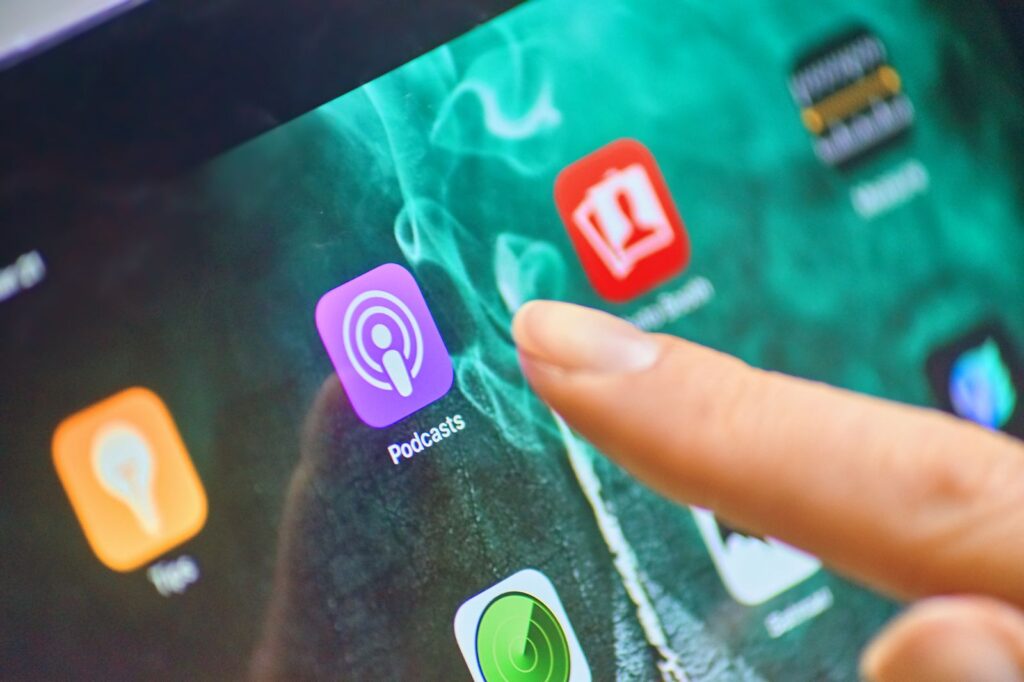
The Growing Power of Podcasts in the Chinese Market
While smart electronic technology has brought us convenience and entertainment, it has also fragmented information and shortened attention span. In recent years, the noisy, fragmented virtual world has given rise to a more profound alternative: podcasts. According to the programme Podcast New Voices, the number of Chinese podcasts has increased sixfold since 2021, with the audience now exceeding 220 million. The revival of the audio market has become both a spiritual resource for many and a promising new channel for brand promotion.
What are Podcasts?
The term ‘podcast’ is a combination of ‘iPod’ from Apple and ‘broadcast’. When podcasts first emerged, they were seen as a form of traditional radio adapting to the internet era, closely linked to Apple’s development of iPod and iTunes app.

Unlike traditional radio, podcasts have the following characteristics:
- Grassroots Nature: Radio programmes are typically produced by media ‘elites’ from radio stations aimed at the general public, whereas podcasts are created by ordinary people, often catering to niche audiences, making them more private, individual, and free-spirited.
- Flexibility: Unlike the strict scheduling and programming of traditional radio, podcasts offer more flexible content choices and listening patterns.
- Personalisation and Diversity: Radio emphasises authoritative, ‘one-to-many’ broadcasts, whereas podcasts create customised, specific experiences for listeners, addressing to various interests, topics, and cultural needs.
- Emotional Connection and Companionship: Podcasts are often longer than traditional radio, allowing for more in-depth discussions. This makes it easier to resonate with listeners, providing continuous companionship and emotional support.
Benefits of Using Podcasts for Brand Promotion
The low-cost and personalised nature of podcasts provide brands with a convenient and powerful way to convey their messages and tell stories.

- High Audience Acceptance of Ads
To ensure a steady flow of quality content, listeners generally support podcasters by accepting advertisements. Moreover, when listening to podcasts, listeners tend to multitask, making it difficult to skip ads. Many podcasters, on the other hand, integrate ads naturally into their shows to make them less intrusive and more engaging. This approach increases audience acceptance and improves the overall listening experience. - Low Promotion Costs
For brands, the cost of either choosing the right podcast for advertising or creating their own branded podcast is relatively low. The development of digital technology, especially the rapid advancement of AI, has further lowered the technical barriers for audio production. Well-known brands such as Nike and Louis Vuitton have launched their own branded podcasts to share their brand stories on platforms like Apple Podcasts and leading Chinese podcast platforms such as Himalaya and Xiaoyuzhou. - Telling Long-Lasting Brand Stories
Unlike the quick, straightforward content delivery on other platforms, podcasts offer a long-lasting, in-depth way to share brand culture and corporate stories. This creates a softer, more subtle form of communication that is not only rich in meaning but also enduring. For example, tennis player Zheng Qinwen participated in Nike’s podcast when she was still not widely known. After she won the Olympic title, the podcast was revisited and spread again. As listeners gained a deeper understanding of the champion, more listeners were drawn to Nike’s podcast out of curiosity and interest.
Final Thoughts
Podcasts offer a unique opportunity for brands to connect with audiences in a more personal and meaningful way. As the podcasting landscape grows, it’s a great time for brands to tap into this platform to build stronger relationships and stand out.

How to Optimize the Effect of Influencer Marketing
In today’s digital age, influencer marketing has become an essential part of any marketing str

What Is The Metaverse?
If you’ve heard or joined in on the discourse surrounding the Metaverse, you should know that the

The Amplifying Impact of Long-Term Influencer Collaborations
In a world of fleeting trends and relentless marketing saturating social media, the digitally savvy




